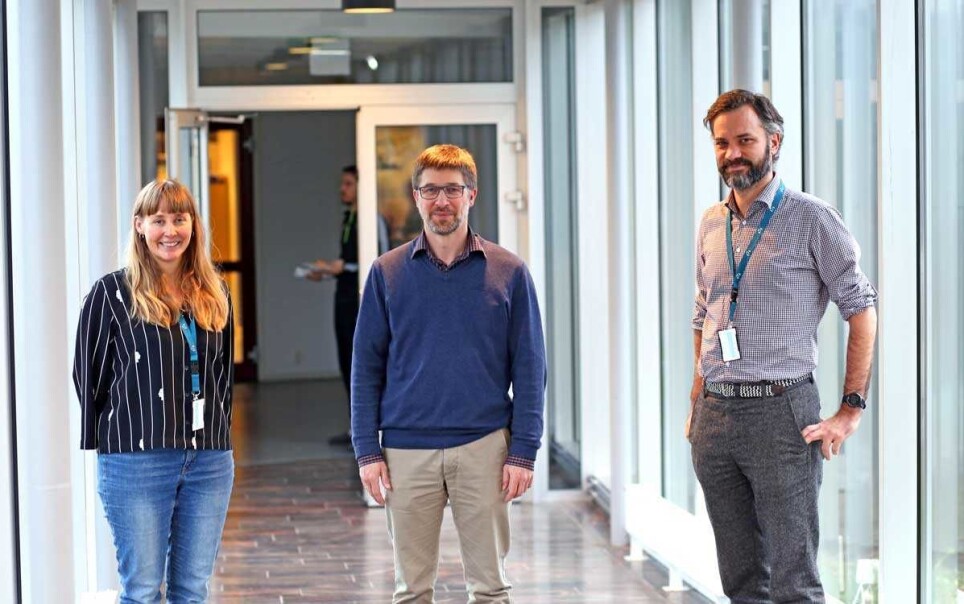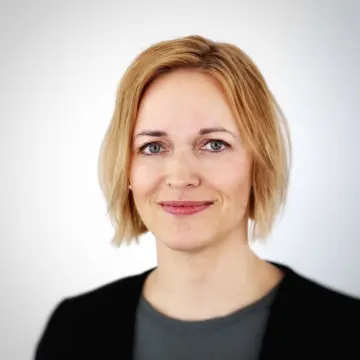THIS ARTICLE/PRESS RELEASE IS PAID FOR AND PRESENTED BY the Norwegian centre for E-health research - read more

App to help people with chronic conditions
Researchers aim to develop a general personalised early risk assessment tool in a mobile app. It can be used to support preventive measures and lifestyle changes in persons with non-communicable diseases, such as skin cancer and diabetes.
WARIFA - Watching the risk factors: Artificial Intelligence (AI) and the prevention of chronic conditions – is a research project funded by EU’s research and innovation programme Horizon 2020.
The project is coordinated by the Norwegian Centre for E-health Research and includes 12 consortium partners from 6 countries.
The primary goal is to define a general personalised early risk assessment tool that will be used to support individual preventive measures for non-communicable diseases, such as cardiovascular diseases, cancer, chronic respiratory diseases and diabetes, the leading causes of death in the world.
This system will be accessible for individual citizens and patients on their smartphone via the WARIFA app. The AI based technology developed in the project could also be embedded in other third-party apps in the near future.
Motivation for healthy lifestyle
Thanks to this risk assessment tool based on automatic processing of both user-generated and big data stored in a central system, citizens will be informed about the risk of developing a certain disease which they previously may not have been aware of, or about a known disease getting worse.
A special feature of the WARIFA tool will be the possibility to advise citizens who are at risk of getting several diseases at the same time. Recommendations addressing the different diseases will be merged and balanced in order to avoid conflicting advice.
The WARIFA app will be conceived with a user-friendly graphic interface helping to assess the need for preventive measures on an individual and person-centred basis.
Furthermore, the app will provide a personalized set of recommendations on lifestyle according to the individual risk profile developed by the AI technology. Citizens are motivated to improve unhealthy habits while good lifestyle choices are supported. Those individuals at a very increased risk are advised to get in touch with the health care system.
Skin cancer and diabetes
The main focus areas of the project are the prevention of melanoma skin cancer by reducing excessive sun exposure, and the prevention of the complications of diabetes by improving lifestyle risk factors such as unhealthy diet and physical inactivity. As a consequence, WARIFA could also play an important role to limit the pressure on the health care system and to decrease the related economic costs.
Thomas Schopf, the coordinator, says:
“The WARIFA project focuses on chronic lifestyle-related conditions that share one important feature: individual citizens who are aware of risks to their own health have a good chance of preventing these diseases by changing risk behaviours. Thanks to our project, citizens, including vulnerable, high-risk, or 'hard to reach' groups, will be provided with a self-monitor tool and individual recommendations for preventive measures to adopt healthier habits and a better lifestyle.”
12 partners from 6 countries
The WARIFA project started on the 1st January 2021.
Its first-class international consortium includes a total of 12 partners from 6 countries and represents expertise within AI technology, e-health, preventive medicine, clinical medicine, epidemiology, sociology, psychology, biostatistics, communication and dissemination.
The partners that will implement WARIFA in the next 4 years are: The Norwegian Centre for E-health Research (Norway) – coordinator, University of Medicine and Pharmacy 'Carol Davila' Bucharest (Romania), UiT The Arctic University of Norway (Norway), University of Las Palmas de Gran Canaria (Spain), University of Oslo (Norway), Munster Technological University (Ireland), CiaoTech Srl (Italy), Netsun Software Srl (Romania), National Research Council (Italy), Rey Juan Carlos University (Spain), Sensotrend Oy (Finland), Norwegian Melanoma Association (Norway).
See more content from the Norwegian centre for E-health research:
-
When your doctor is online: People expect a reply within 24 hours
-
Technology in the health and care sector: "This is not just about new gadgets"
-
Five Nordic and Baltic countries take a major step toward the future of health research
-
A digital chatbot can help you stay fit
-
Researchers' advice for better healthcare services: Listen to the patient!
-
Half of those who received mental health care found errors in their medical records






































